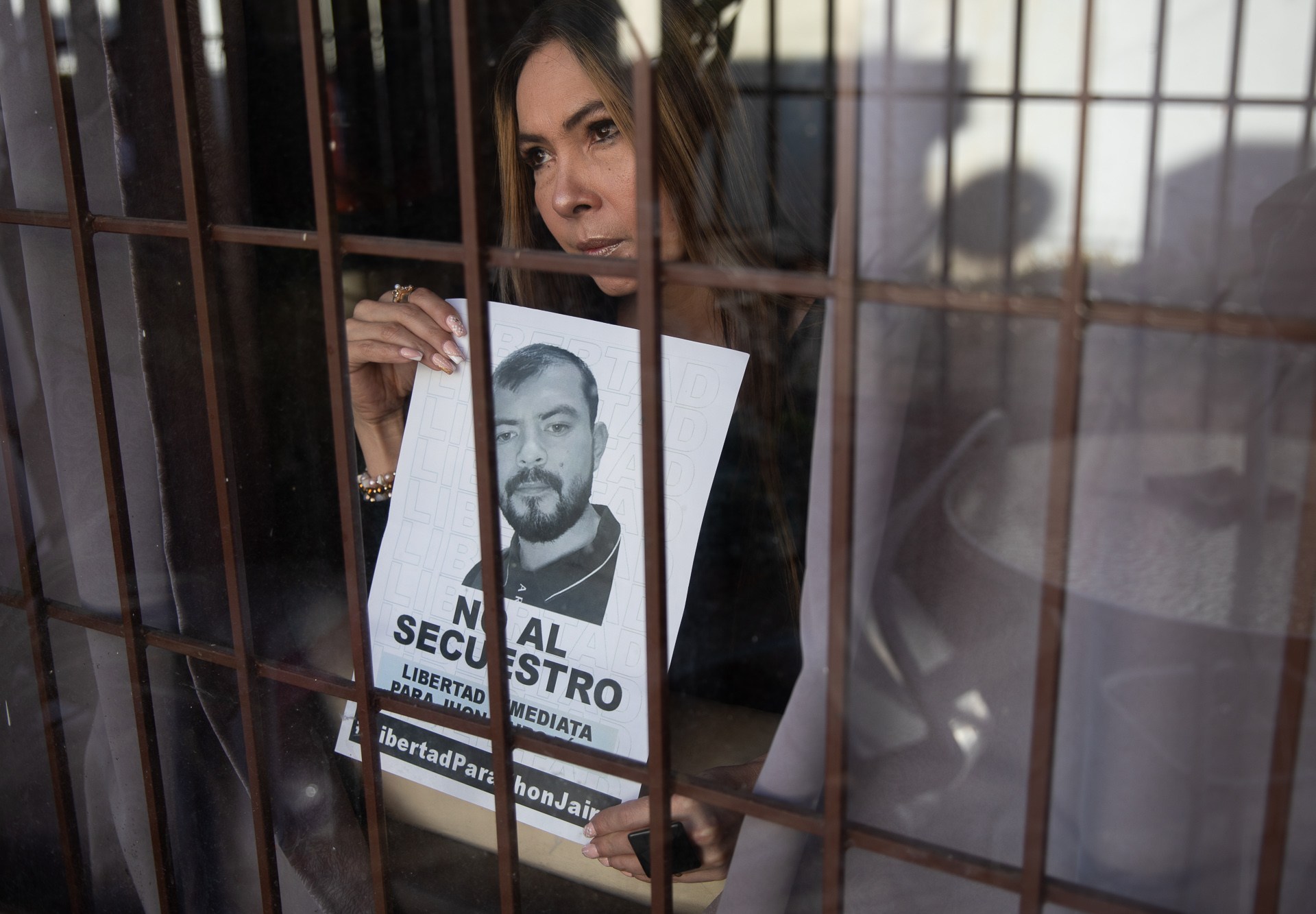
Chia, Colombia – Decnis Diaz was at home in Chia, Colombia, on November 18 when she received a call from her siblings: her beloved younger brother, Jhon Jairo Diaz, had been kidnapped.
Store manager Jhon Jairo, 34, was finishing his shift at a meat market in Cucuta, a border town near Venezuela, when four masked men held him at gunpoint and dragged him into a black sedan. Surveillance cameras captured the vehicle speeding away.
“I could not believe it. It always seemed to me that kidnapping was a terrible crime, but I never thought that our family would become a victim of it,” Diaz said.
Jhon Jairo was the latest victim of an unexpected crime development: the number of kidnappings in Colombia has recently risen sharply.
A total of 287 people were kidnapped between January and October, a Increase of 73 percent according to the Ministry of Defense compared to the same period last year.
Once a common tactic in Colombia’s decades-long internal conflict, kidnappings have long been a source of revenue for the country’s armed groups, who demand an extortion fee in exchange for the hostage’s safe return. In some cases, the ransom can be… Hundreds of thousands of dollars.
But the kidnapping rate had dropped after one Peace agreement 2016 between the government and the Revolutionary Armed Forces of Colombia (FARC), the country’s largest rebel group at the time.
However, the practice is on the rise again. The number of kidnappings this year – expected to be the highest since 2016 – has shocked many Colombians, some of whom believed the crime was all but extinct.
“We thought kidnapping was something from our parents’ generation,” said Ana de la Peña, whose husband Fabián Arias was kidnapped on October 2 outside his mother’s home in Ocaña. “But the dark past that we didn’t want to remember has returned.”
A decline and a rise in cases
The FARC was the main perpetrator of kidnappings in Colombia for decades, responsible for an estimated 100,000 people 40 percent of kidnappings between 1990 and 2018.
But the 2016 peace agreement resulted in the FARC being disbanded as a military force. Immediately afterwards, kidnappings began to decline, reaching a low of 92 in 2019.
However, this downward trend was reversed in Colombia renewed violence.
Rival armed groups and criminal networks rushed in Fill the power vacuum The FARC had lagged behind and seized the opportunity to take over their illegal drug and mining operations.
Experts say kidnappings have become an important tool for financing their growing ranks.
Critics also blamed the president for the increase Gustavo Petro, who took office in 2022 as Colombia’s first left-wing leader. Petro, himself a former rebel fighter, promised to improve security Peace talksa strategy he “Total peace“.
To participate, armed groups had to agree not to murder, torture or “disappear” civilians during negotiations. But the agreement does not explicitly ban kidnappings – a loophole that critics say could be exploited by groups to maintain control over populations and territory.
“What we have seen in many cases is this [armed groups] have traded this open, visible violence for much quieter and invisible social control,” said Elizabeth Dickinson, a senior analyst at the think tank Crisis Group.
Kidnappings are “extremely effective in silencing the population because they create an atmosphere of fear and subjugation,” she added.
Many kidnappings occur without much public opposition because they are often kept out of the news, said Tatiana Prada, a researcher at the Ideas for Peace Foundation. Relatives are often afraid to speak out because they fear that their words could endanger the hostage’s life.
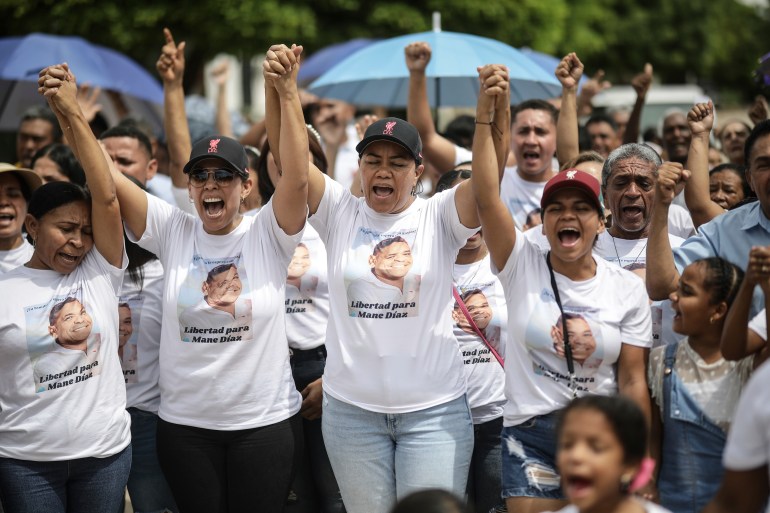
Lobbying for the freedom of a loved one
But a high-profile case caused the issue to gain national attention. In late October, the National Liberation Army (ELN) – Colombia’s largest remaining rebel group – kidnapped the parents of Luis Diaz, Liverpool FC strikera popular Colombian football player.
While his mother was found within hours, his father remained missing for 12 days, sparking a nationwide manhunt. Public outrage reached such a peak that the ELN released Diaz’s fathercalling the kidnapping a mistake.
“It brought to light what was already a reality, which was that the kidnappings continued unabated despite negotiations,” Dickinson said. “The question that arises is: ‘Why are we negotiating with these groups if they don’t change their behavior?'”
Fearful of government inaction, families have now taken it upon themselves to organize grassroots campaigns to bring their loved ones home.
Diaz, for example, spoke about her brother Jhon Jairo in the Senate and called on politicians to act faster to save her brother.
If public pressure could help secure the release of a footballer’s father, she believes it could work for her brother too.
“With all my heart and tears in my eyes, I beg you to help me,” Diaz told a room full of senators. “Don’t leave us alone.”
Jhon Jairo’s family and friends also held a vigil in his hometown of Cucuta, using hundreds of candles to spell out the message: “Free him.” The local priest even held a mass in his name.
De la Peña, whose husband Arias was kidnapped, also launched a campaign to demand her husband’s freedom.
On the social media platform X, de la Peña shared photos of her five month old daughter wearing a white onesie printed with a picture of Arias and a message: “Free my father. We want him home.”
The Office of the High Commissioner for Peace confirmed in November that Arias was being held by the ELN – the same group that kidnapped the soccer player’s parents.
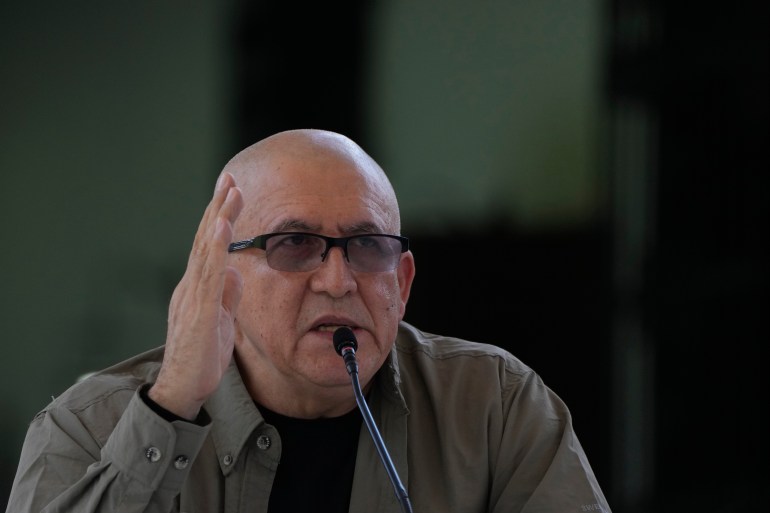
Kidnapping as a source of income
The ELN has long rejected calls to stop the abduction of civilians, citing its use as a source of income. On social media, Antonio Garcia, the ELN’s commander in chief, even questioned whether the term itself applied to the group’s actions.
“The ELN does not carry out kidnappings,” Garcia wroteHe said his group “only accepts prisoners and detainees.”
He also described Kidnapping as “withholding” civilians for “tax purposes.”
Defense Minister Ivan Velasquez quickly refuted that claim. He told reporters that unlawful detention of civilians, even for economic reasons, still amounted to kidnapping.
“There is no discussion about that and we cannot discuss the terms,” Velasquez said. “It is what it is.”
However, the ELN and other armed groups have now changed their stance. On December 11th the Central General Staff (EMC), an armed group made up of former FARC members, signed a bilateral agreement with the government to end kidnappings for ransom.
The ELN followed suit. At December 17thIts leaders also agreed to suspend kidnappings for ransom once a temporary bilateral ceasefire comes into effect in January.
But the breakthrough did not come without criticism. Neither the EMC nor the ELN said whether they would release hostages already in custody, a fact that sparked skepticism even within the government.
“It is not enough to say that they will stop the kidnappings. They have to hand over hostages,” Velasquez said.
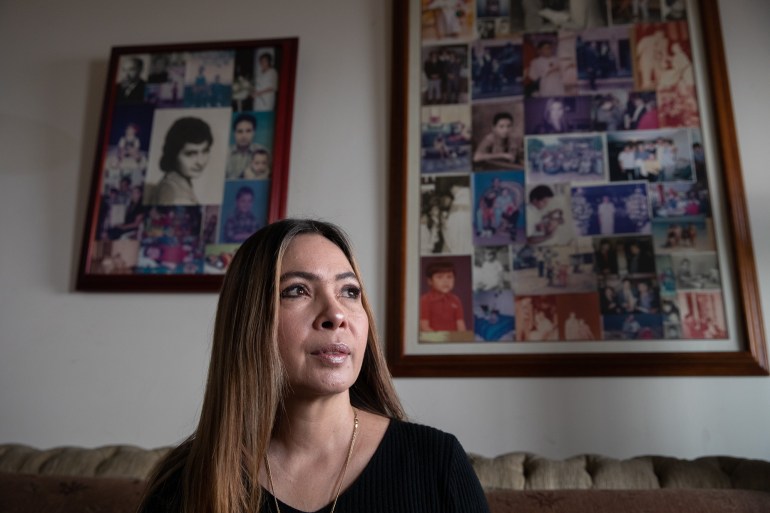
A long-awaited homecoming
According to the Ministry of Defense, the ELN is currently holding 38 hostages. According to the Office of the Ombudsman, a total of 91 civilians from all of Colombia’s armed groups and criminal gangs remain in captivity, although reporting is often under-reported.
Amid the uncertainty, however, the Diaz family received unexpected good news this month, just weeks before the Christmas holidays: Jhon Jairo had been released.
“He came back traumatized but we are thrilled to have him home,” Decnis Diaz told Al Jazeera a day later.
De la Peña also saw the return of her husband Arias a day later, on December 12th.
“Welcome to freedom, love of my life,” she said wrote She posted a beaming selfie on social media in which she wrapped her arms around him.
This Christmas, Diaz said her relatives from all corners of Colombia traveled to Cucuta to spend the holiday as a family with Jhon Jairo.
“Neither money nor material goods can replace the feeling of love and family unity,” Diaz said. “Having Jhon Jairo back home for Christmas is the greatest gift of all.”

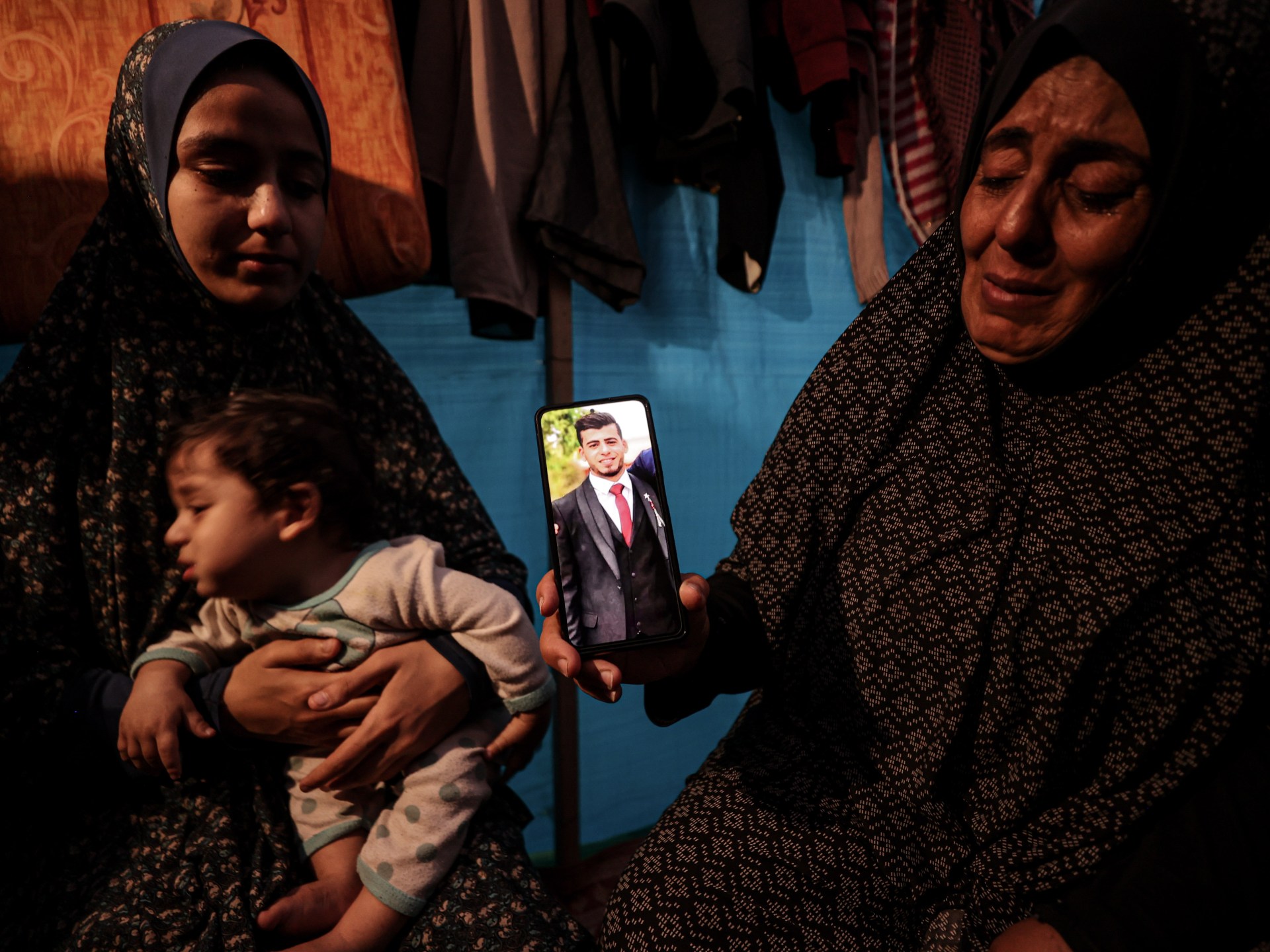
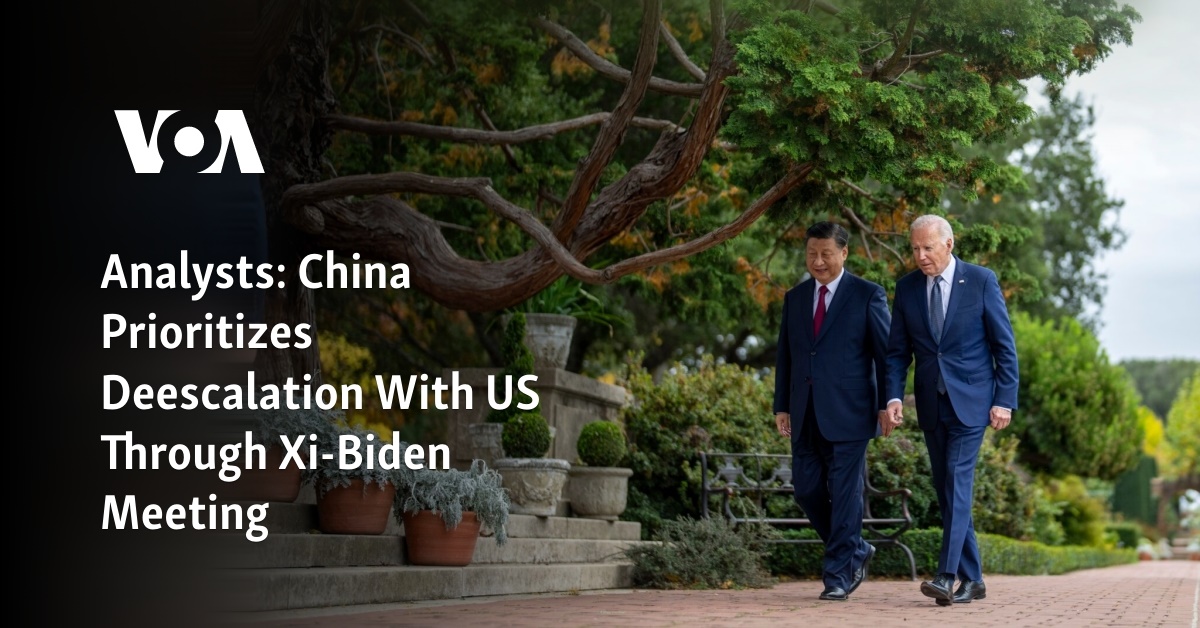

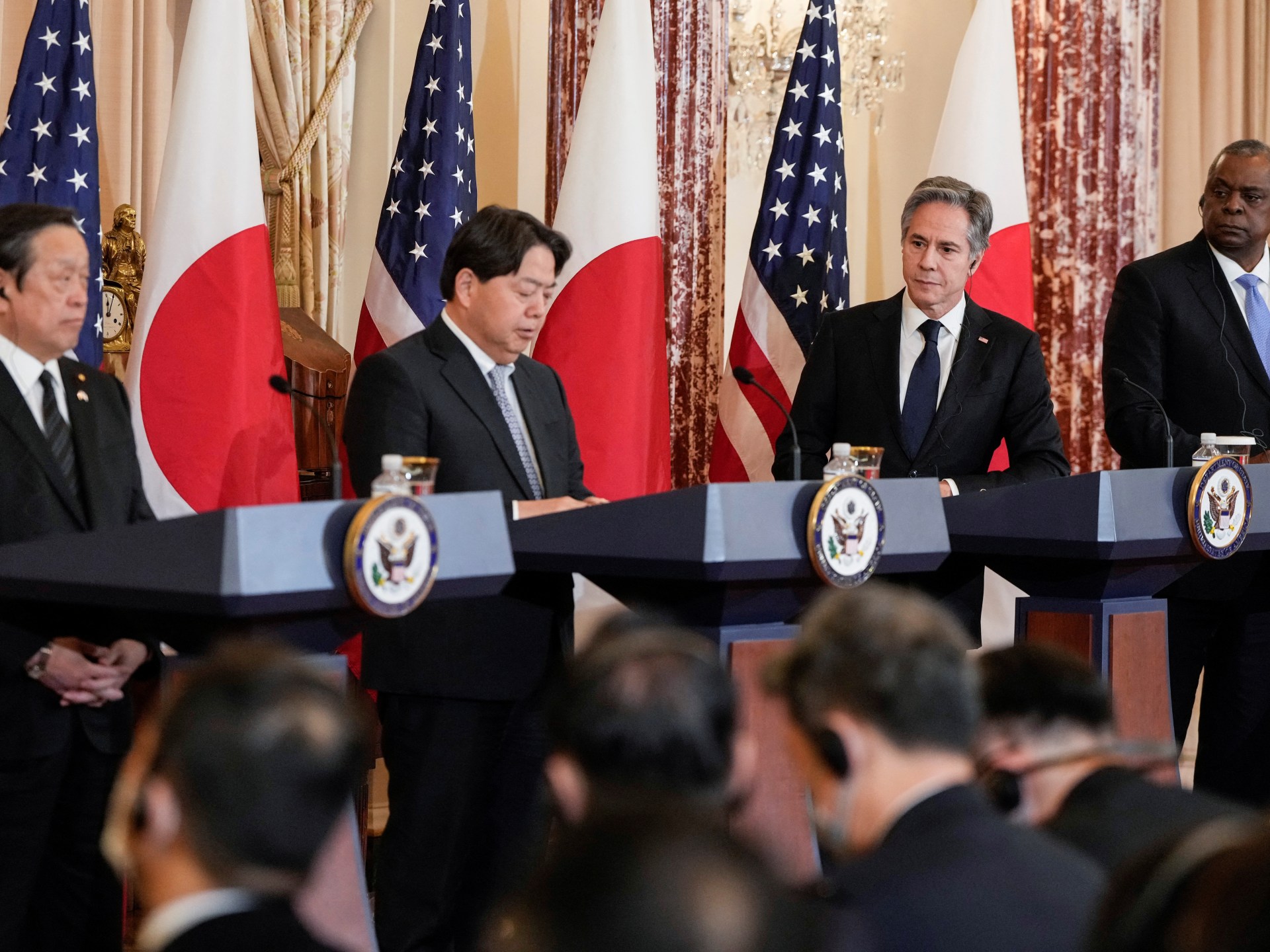

Recent Comments